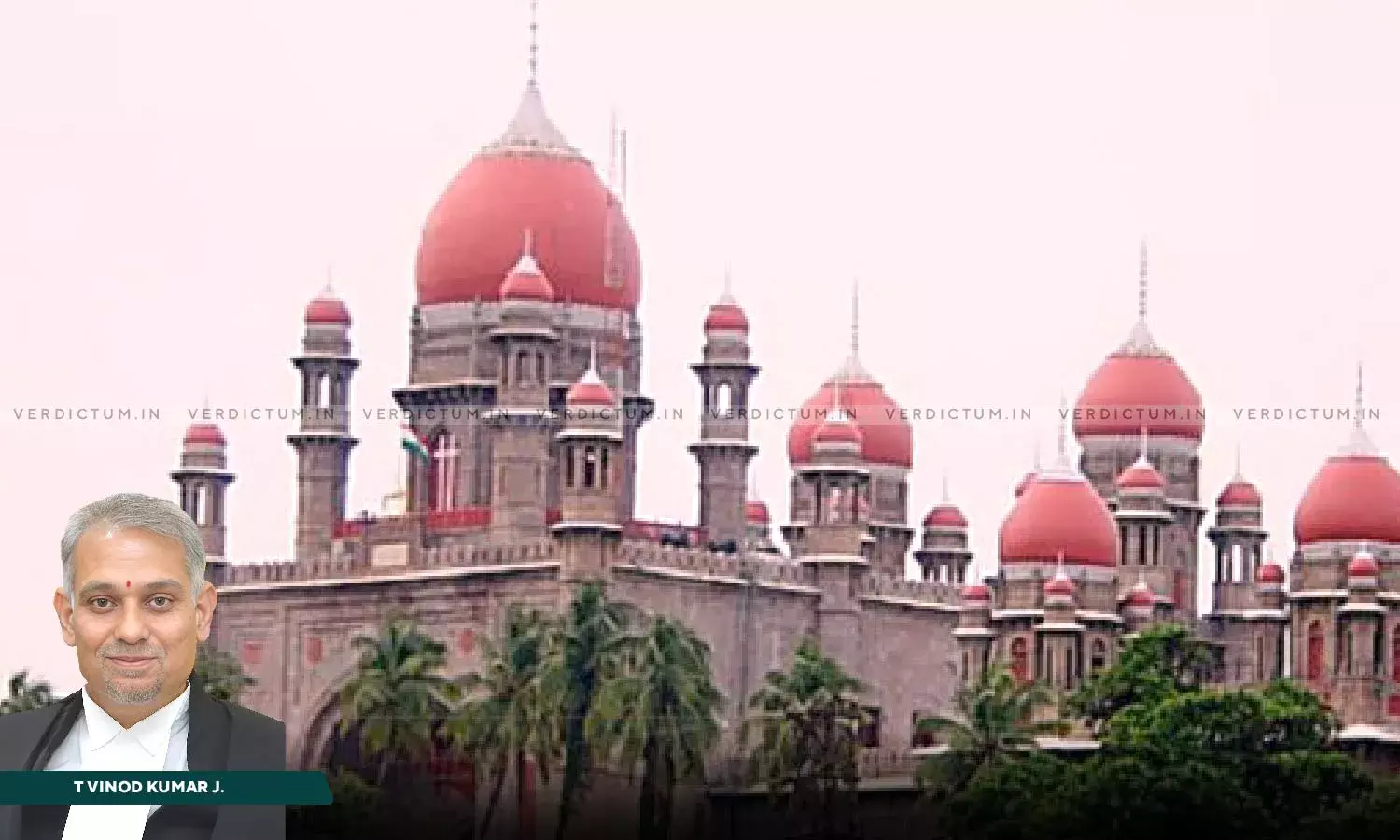Younger Generation Unmindful Of The Past Of ‘Townhalls’ Using It As Commercial Hubs To “Chill”: Telangana HC
The Telangana High Court in a commercial dispute pertaining to a “Townhall” has remarked that the State and its instrumentalities are oblivious of the purpose behind it, and the younger generation is using it as the most happening place to “chill”.
The bench in the matter had further held that a lease is like any other commercial contract under the Indian Contract Act, 1872, for the enforcement of the covenants of the contract or for any breach and, the parties have to work out their remedies under civil law. Thus, a mere allegation that the subject premises was seized by the authorities under the capacity of the state would not by itself convert the inherent nature of the disputes (under public law).
Therefore, while holding that the present petition was not maintainable and the petitioner was not entitled for grant of any relief, a bench of Justice T. Vinod Kumar observed, “In some places the Town Halls also housed libraries, the Asiatic Society of Mumbai is one such Library is one such. Such facilities had raised and honed brilliant minds, and who had in turn shaped our country. That apart, such Town Halls also play a major role in promoting cottage and handloom industries along with local produce and products…It is unfortunate to note that we are living in a day where the State and its instrumentalities are oblivious to the purpose behind creation of Town Halls, and are ignoring the Socialist approach which it is required to adopt, in the name of revenue generation to take up public works, are converting such facilities into commercial hubs rampantly, while the younger generation unmindful of the past and also what is store in future are considering such commercial facilities created by the State and its instrumentalities as the most happening place for them to ‘chill’”.
M/s. Kowlur Archana appeared for the petitioner and Government Pleader for MA&UD for respondent No.1 and Standing Counsel Jagan Madhav Rao for respondent Nos.2 and 3
In the present matter, it was averred by the petitioner that he was granted lease of the property ‘town hall’ for a period of 5 years under registered rent/lease agreement on the terms and conditions agreed upon. Then respondent no. 2 issued notice claiming that the petitioner violated various covenants of the agreement. It was further contended that the such action in seizing the subject premises leased to it on the ground of alleged violations of the covenants of the agreement are all invented to cause hurdles, the business activity of the petitioner on account of change of Government; and that the petitioner is conducting its business activities in the subject premises as permitted under the agreement.
However, while the petitioner claimed that there was no breach of the covenants of the Agreement, the 2nd respondent to the contrary contended that the petitioner by his own admission had stated to be running multiple food joints in the subject premises in the name of ‘Anand Bhavan Hotel’, ‘Anand Bhavan Grand Restaurant’, ‘Chat Mantra’, apart from running ‘New Grand Mandi & Biryani Barbie Que” at the entry point of the Town Hall which has not been disclosed and running of these food outlets cannot be considered as Telangana eateries and stalls reflecting the culture and traditions of “Telangana”.
The bench noting the facts and circumstances noted that said claims by each of parties not only involved the expression of intent of the parties entering into contract, but also involves factual aspects which are in dispute between the parties. Further that the courts cannot venture into the disputed question of facts.
The bench, therefore, drew the following conclusions:
1. The disputes arising under the contract of the present nature would not be amenable to writ jurisdiction; and
2. Since the Writ Petition filed also involves disputed factual aspect, the writ is not maintainable
The bench while referring to National Highway Authority of India v. Ganga Enterprises and others (2003) 7 SCC 410 further noted that it is well settled that Courts cannot decide matters relating to breach of contract in exercise of powers conferred under Article 226 of the Constitution of India.
“…However taking note of the concession given by the 2nd respondent in the impugned order by filing of appeal to the District Collector or to RDMA, Warangal, this Court is of the view that though an Appeal is not strictly maintainable under the provisions of the Act, the petitioner can seek the revision of the impugned order passed by the 2nd respondent by approaching the District Collector since the said authority is subject to the jurisdiction of the District Collector under Section 53(5) of the Act, if he is so advised or else he is at liberty to work-out his remedies in civil law”, the order read.
Appearances:
Petitioner: M/s. Kowlur Archana
Respondents: Government Pleader for MA&UD for respondent No.1 and Sri Jagan Madhav Rao, Standing Counsel for respondent Nos.2 and 3
Cause Title: Kotagiri Jay Kumar v. The State of Telangana, rep., by its Principal Secretary (MAUD), Telangana Secretariat, Hyderabad and two others
Click here to read/download the Order




